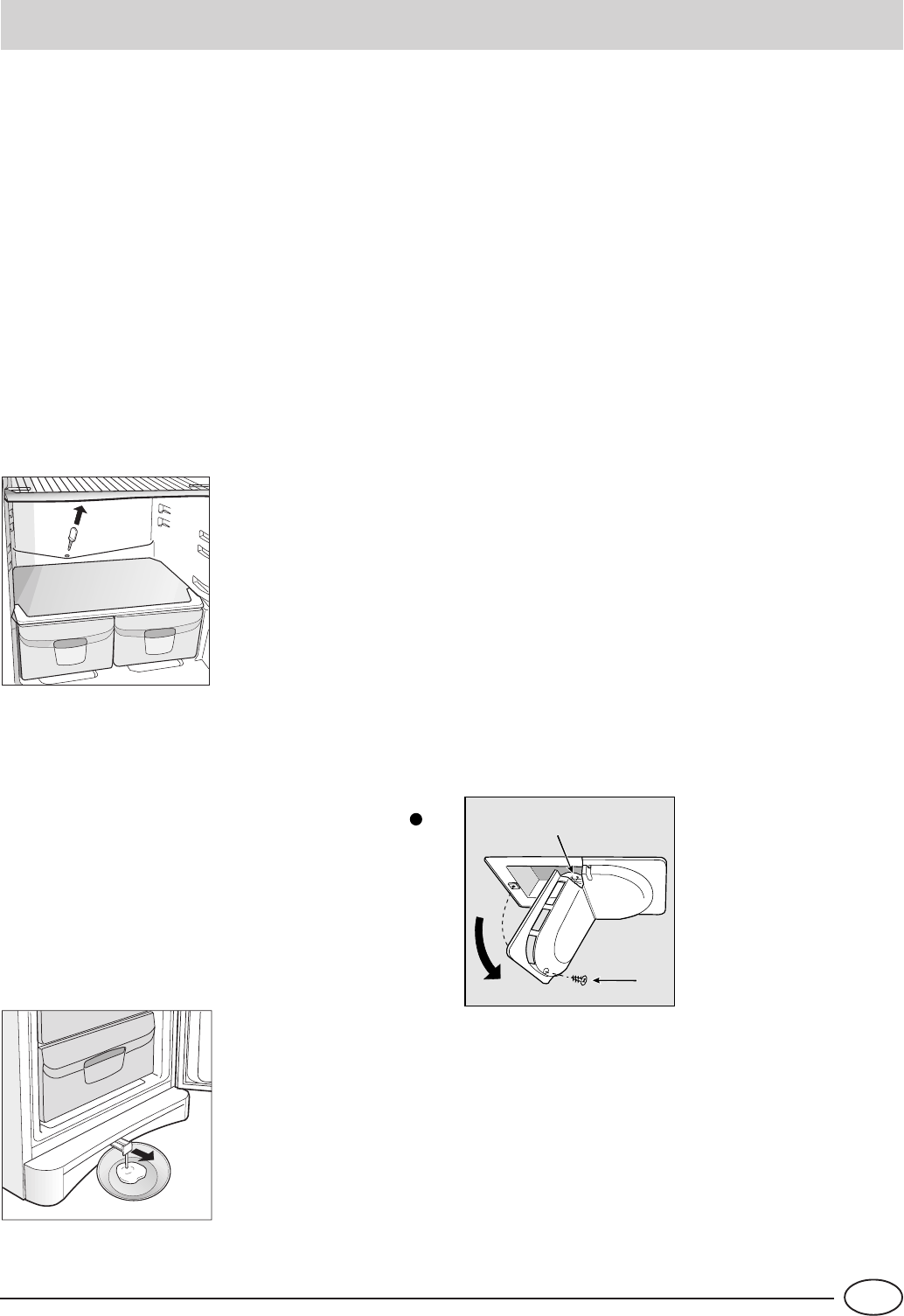
9
GB
Cleaning and maintenance
Always unplug the appliance from the mains before
cleaning.
- Your appliance is manufactured with hygienic odourless
materials. To preserve these characteristics, always use sealed
containers for strong smelling foods to avoid the formation
of odours that are difficult to remove.
- Use only a water and bicarbonate solution: Clean the
internal and exterior of your appliance with a sponge soaked
with a warm water and sodium bicarbonate solution, which
is also a good disinfectant. If you do not have any sodium
bicarbonate at home, use neutral detergent.
- What not to use: Do not use abrasive detergents, bleach
or detergents containing ammonia. Never use solvent based
products.
- Dishwashable: All the removable parts can be cleaned by
soaking in hot soapy water or detergent. If you own a
dishwasher, you may wash these parts in the dishwasher.
Remember to dry thoroughly before replacing them.
- What about the back panel? Dust may deposit on the back
panel and affect the proper running of the appliance. To
remove dust, vacuum away the dust very carefully using the
appropriate vacuum cleaner accessory.
- Discontinued use of the appliance: If the appliance is not in
use for any length of time, remember to clean the interior
and dry thoroughly, leaving the doors open to prevent the
formation of bad odours and mould.
- Replacing the light bulb.
When replacing the light of the refrigerator compartment
unplug the unit from the power supply and chang the used
lamp with another one of not more than 15 W.
For access ti lamp "A", remove the centre screw "B" at the
back of the lamp cover, as indicated in fig. 5.
Fig. 5
A
B
Before doing any cleaning, disconnect the appliance
from the electricity (by pulling out the plug or turning
off the general switch in your home).
Defrosting
WARNING: do not damage the refrigeration circuit.
Do not use mechanical devices or other tools to speed
up the defrosting process, unless they have been rec-
ommended by the manufacturer.
How to defrost the refrigerator compartment
This appliance features automatic defrosting; condensed
water flows to the back of the appliance through a drain
(see Fig. 3) where the heat produced by the compressor
causes it to evaporate to the exterior.
The only precaution you need take, is to ensure the drain
hole behind the crisper is cleaned regularly, so that the wa-
ter can drain freely.
Caring for Your Appliance
Fig. 3
How to defrost the freezer compartment
Remember to regularly remove frost with the scraper pro-
vided (never use a knife).
When the layer of frost is more than 5 mm thick you should
defrost the appliance. Follow these steps: set knob A to “ ”;
wrap deep frozen and frozen foods in newspaper; and place
them in the refrigerator or in a cool place. Leave the freezer
door open so that the frost thaws completely, placing basins
of warm water in the freezer to speed up defrosting.
The unit is provided with a system which allows the defrost
water to be collected in a container to be placed beneath
the unit (proceed as illustrated in fig. 4).
Dry the inside of the unit carefully.
Fig. 4


















